On this page:
Associate Fellows
O'Brien Fellows in Residence
O'Brien Graduate Fellows
Visiting Fellows & Scholars
Associate Fellows
Edit Frenyó
 Edit Frenyó is currently a Hauser post-doctoral Global Fellow affiliated with NYU’s Center for Human Rights and Global Justice. Her teaching and research experience include transnational family law, migration, welfare and social policy. Edit holds a JD from the University of Szeged (Hungary), an LL.M. from Boston College Law School and an SJD from Georgetown Law. Prior to joining NYU, Edit was a Steinberg Post-Doctoral Fellow in Migration Law and Policy (2018 – 2020), at McGill University Faculty of Law, affiliated with the CHRLP and working closely with Prof. François Crépeau.
Edit Frenyó is currently a Hauser post-doctoral Global Fellow affiliated with NYU’s Center for Human Rights and Global Justice. Her teaching and research experience include transnational family law, migration, welfare and social policy. Edit holds a JD from the University of Szeged (Hungary), an LL.M. from Boston College Law School and an SJD from Georgetown Law. Prior to joining NYU, Edit was a Steinberg Post-Doctoral Fellow in Migration Law and Policy (2018 – 2020), at McGill University Faculty of Law, affiliated with the CHRLP and working closely with Prof. François Crépeau.
Edin Hodžić

Edin’s research interests mostly lie in the fields of constitutional law and international human rights law, but he also remains committed to combining insights from political science and political theory. He is particularly focused on exploring the theory and practice of collective and minority rights and complexities of transitional justice.
Rodziana Mohamed Razali
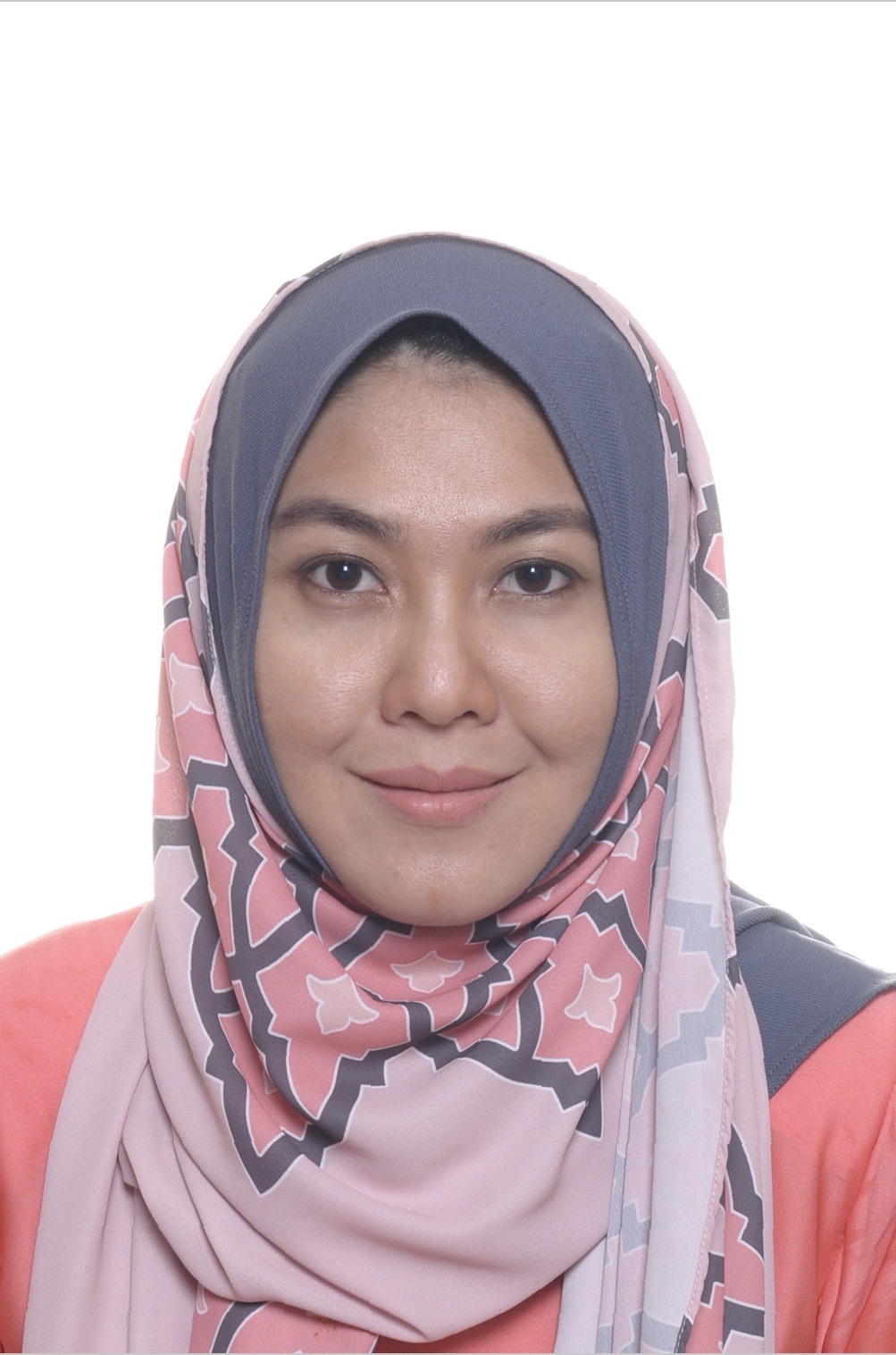 Dr. Rodziana Mohamed Razali holds a PhD from the National University of Malaysia and an LL.M from the University of Melbourne. From 2018 to 2019, she was attached to McGill’s Centre for Human Rights and Legal Pluralism as a Steinberg Post-Doctoral Fellow in International Migration Law. She was previously in the Malaysian Judicial and Legal Service and currently is a senior lecturer at the Islamic Science University of Malaysia. Other than migration law and policy, her research interests focus on the intersection between birth registration, legal identity, prevention of statelessness and rights of the minorities, including refugees and migrants. In 2018, she was appointed as a co-researcher to provide a consultancy service on Analysis of the Situation of Children and Women in Malaysia (2018), a project with UNICEF Malaysia. She has recently been engaged by the Government of Malaysia as a lead consultant to undertake a research to re-evaluate specific policies addressing temporary work permit holders in Malaysia and by UNICEF Malaysia to assess gaps in birth registration for children affected by migration in Peninsular Malaysia. In the course of her research, she has worked closely and collaborated with UNHCR Malaysia, UNHCR Regional Bureau for Asia and the Pacific and the Peter McMullin Centre on Statelessness on various talks, trainings and projects.
Dr. Rodziana Mohamed Razali holds a PhD from the National University of Malaysia and an LL.M from the University of Melbourne. From 2018 to 2019, she was attached to McGill’s Centre for Human Rights and Legal Pluralism as a Steinberg Post-Doctoral Fellow in International Migration Law. She was previously in the Malaysian Judicial and Legal Service and currently is a senior lecturer at the Islamic Science University of Malaysia. Other than migration law and policy, her research interests focus on the intersection between birth registration, legal identity, prevention of statelessness and rights of the minorities, including refugees and migrants. In 2018, she was appointed as a co-researcher to provide a consultancy service on Analysis of the Situation of Children and Women in Malaysia (2018), a project with UNICEF Malaysia. She has recently been engaged by the Government of Malaysia as a lead consultant to undertake a research to re-evaluate specific policies addressing temporary work permit holders in Malaysia and by UNICEF Malaysia to assess gaps in birth registration for children affected by migration in Peninsular Malaysia. In the course of her research, she has worked closely and collaborated with UNHCR Malaysia, UNHCR Regional Bureau for Asia and the Pacific and the Peter McMullin Centre on Statelessness on various talks, trainings and projects.
Nilüfer Yenice
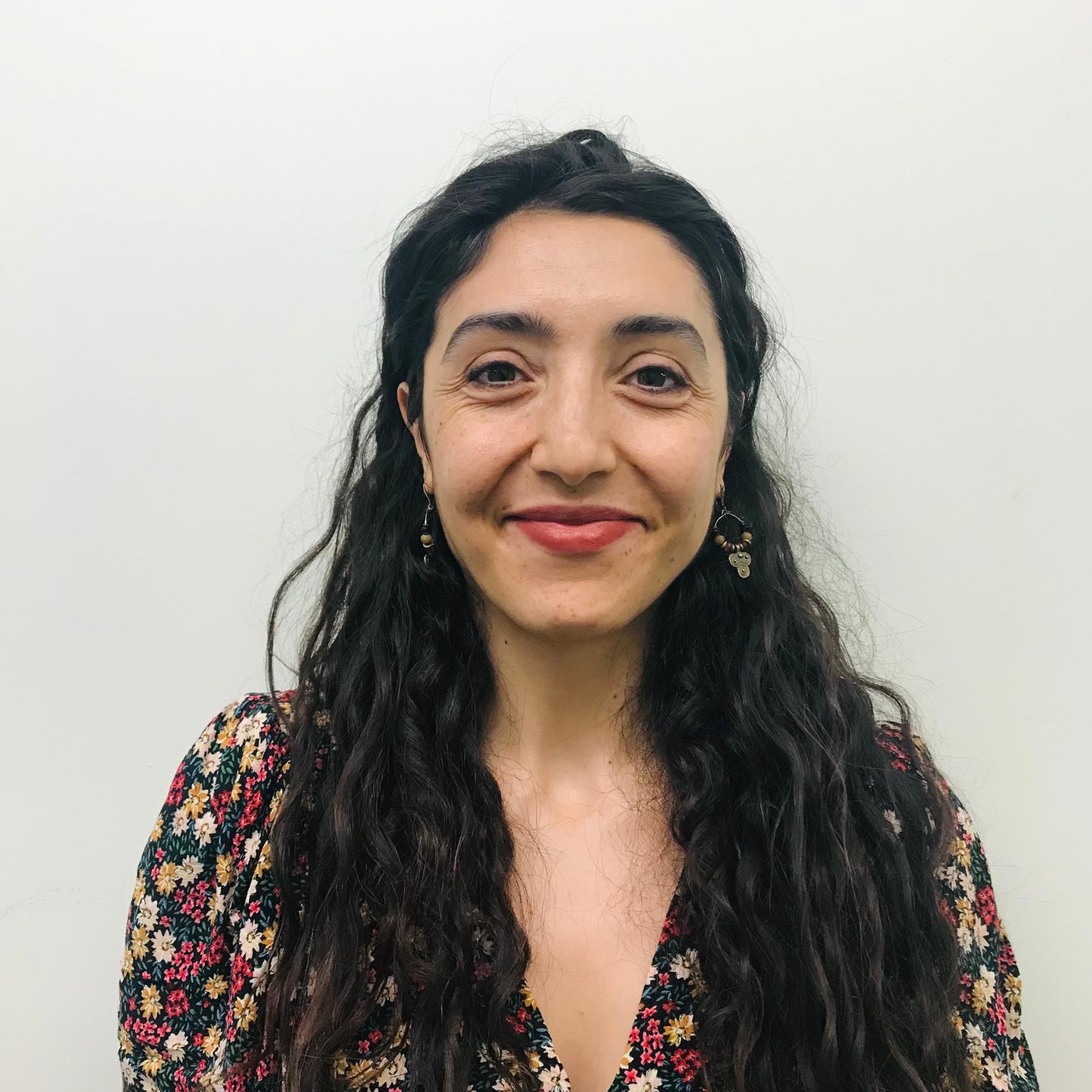 Nilüfer Yenice holds a Bachelor of Laws degree from the Istanbul University Faculty of Law (Istanbul, Turkiye), under the guidance of the General Theory of International Human Rights Law. She has been practicing criminal law and human rights law, registering with the Istanbul Bar Association. She is a lawyer with strong ties to legal practice, co-authoring the book “The Regime of Assurance and Restriction on the Freedom of Expression.” She has authored numerous articles on human rights law, such as “The Effect of the 'Sole' or 'Decisive' Evidence of an Absent Witness's Statement,” “Remand to the Victim in the Light of the Supreme Court’s Decisions in the Seizure and Compensation,” “The Justification of the Marriage Community in the Context of Discriminatory Violence,” “The Obligation to Enforce the Violation Decision in Individual Application and Constitutional Expectations” offers a distinguished perspective on the inadequate implementation of the Constitutional Court’s judgments on violations of rights.
Nilüfer Yenice holds a Bachelor of Laws degree from the Istanbul University Faculty of Law (Istanbul, Turkiye), under the guidance of the General Theory of International Human Rights Law. She has been practicing criminal law and human rights law, registering with the Istanbul Bar Association. She is a lawyer with strong ties to legal practice, co-authoring the book “The Regime of Assurance and Restriction on the Freedom of Expression.” She has authored numerous articles on human rights law, such as “The Effect of the 'Sole' or 'Decisive' Evidence of an Absent Witness's Statement,” “Remand to the Victim in the Light of the Supreme Court’s Decisions in the Seizure and Compensation,” “The Justification of the Marriage Community in the Context of Discriminatory Violence,” “The Obligation to Enforce the Violation Decision in Individual Application and Constitutional Expectations” offers a distinguished perspective on the inadequate implementation of the Constitutional Court’s judgments on violations of rights.
Throughout her professional career, she actively participated in various colloquia and training programs. These included the United Nations Human Rights Council’s colloquium on “The Role of the Human Rights Committee on the Protection and Supporting of Human Rights,” the Human Rights Committee of the Bar Association of England and Wales’ program on “Refugee Rights in International Law and Migrant Population in Turkiye,” and several training programs organized by the Council of Europe, within the scope of “Joint Project on Supporting the Individual Application to the Constitutional Court in Turkiye.” Attending numerous seminars hosted by the Turkish Constitutional Court, the Justice Academy of Turkiye, the Court of Cassation, and the Human Rights and Equality Institution of Turkiye has had a substantial impact on her field of research. In addition, she has served as a member of the Center for Human Rights of the Istanbul Bar Association and has translated numerous judgments from the European Court of Human Rights (ECtHR) to assist lawyers in their duty to uphold and advance human rights law. These translations also benefit individuals whose rights have been infringed upon by the authorities. She recently obtained a master’s degree in law, specializing in international taxation law, and completed a research project titled “Taxation and Sustainable Development Goals: The Case of Turkiye.” The objective of her research is to identify deficiencies and disparities in tax policy, fostering a more explicit conversation with sustainable development goals. She holds the belief that legal professionals have a vital role in avoiding and contending against the severe consequences of tax abuse on human rights.
She is currently an LLM student at the McGill University Faculty of Law and an O’Brien Fellow at the McGill Centre for Human Rights and Legal Pluralism. Her proposed research topic, titled “Unraveling the Impact of Privatization Policies on Human Rights: A Holistic Inquiry,” aims to provide a comprehensive understanding of how privatization policies influence the well-being and dignity of individuals, particularly those in vulnerable communities. The goal of this research is to shed light on the potential challenges and risks associated with privatization policies, as well as their impact on fundamental human rights. In addition to guiding the development of responsible and people-centered economic policies that balance financial goals with societal well-being, the findings also equip policymakers with empirical evidence to make informed decisions about privatization policies that adequately address human rights considerations. It offers insights for civil society organizations and advocacy groups, empowering them to engage in evidence-based advocacy against potential human rights violations resulting from privatization.
Obaid
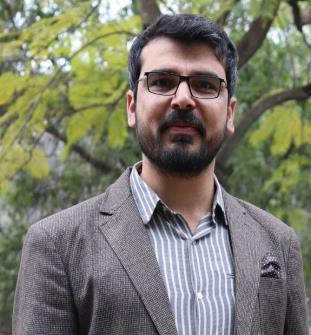 Mr. Obaid is a doctoral student in sociology at Quaid-i-Azam University in Islamabad, Pakistan, and he works on “The Social Wellbeing of Afghan Elderly Refugees in Pakistan”.
Mr. Obaid is a doctoral student in sociology at Quaid-i-Azam University in Islamabad, Pakistan, and he works on “The Social Wellbeing of Afghan Elderly Refugees in Pakistan”.
He is currently starting one year as a graduate research trainee (GRT) here at the McGill Faculty of Law, under the supervision of Prof. Francios Crepeau. As a GRT, he will work on comparative perspectives regarding his doctoral research topic.
He has already worked extensively with refugees and agencies working with refugees. For example, in the framework of his doctoral research, he has administered structured questionnaires to a sample of 2367 elderly Afghan refugees in 29 districts in four provinces of Pakistan. He has worked with governmental agencies, international and local NGOs to overcome social barriers, such as gender.
He also has a professional experience working with local communities on issues related to their wellbeing, such as health and sanitation, as well as a teaching experience on the sociology of aging at university level.
O'Brien Fellows in Residence
Johanna Nelles: January – April 2023
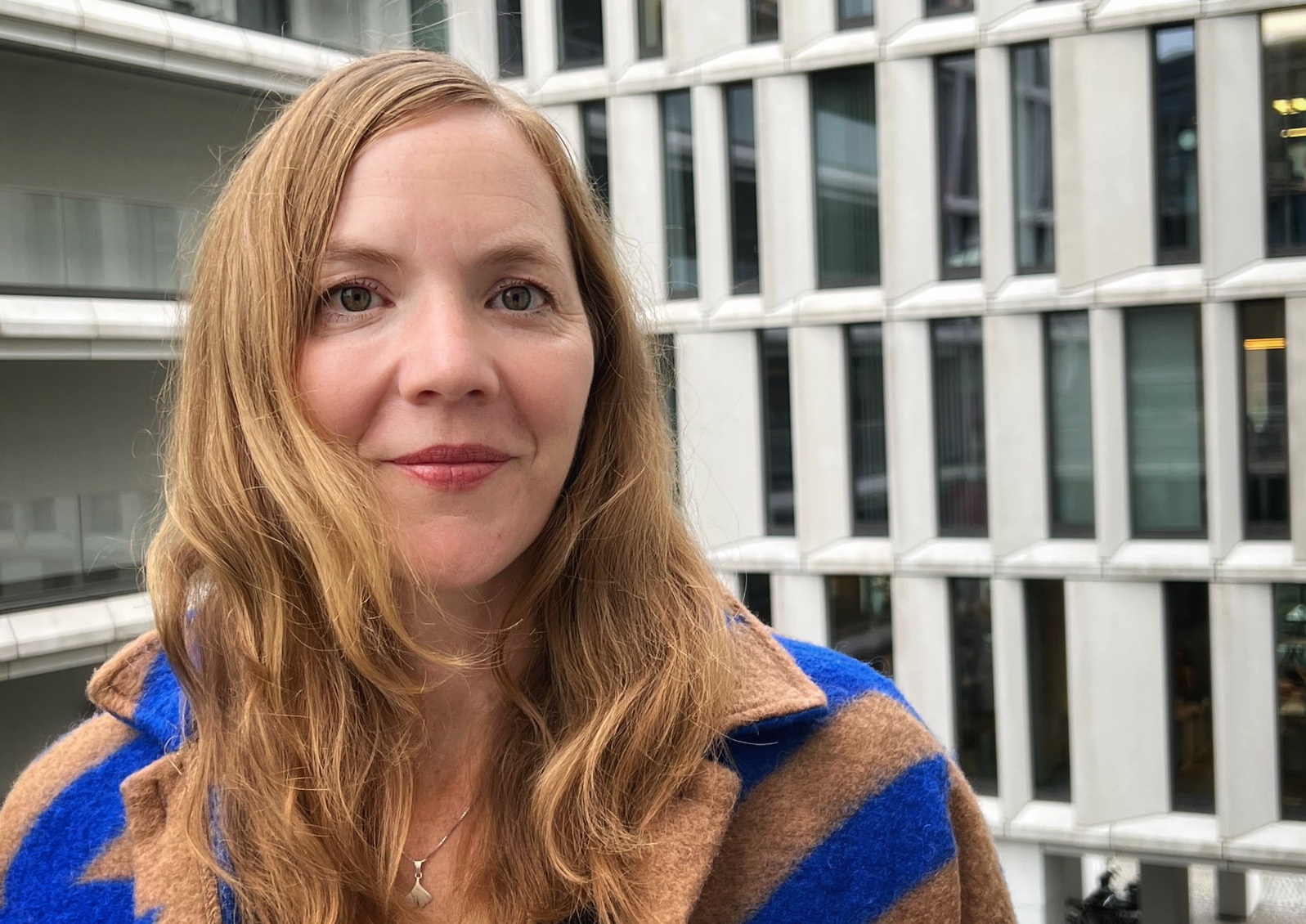 Johanna Nelles is a women’s rights expert with a focus on preventing and combating violence against women. Working for the Council of Europe since 2006, she was instrumental in the development of the Organisation’s Convention on Preventing and Combating Violence against Women and Domestic Violence, also known as the Istanbul Convention after the city in which it opened for signature. This human rights treaty sets far-reaching and innovative legal standards for a wholistic response to violence against women, including prevention, protection and prosecution. Since its inception, Johanna shaped the monitoring of the treaty’s implementation in the 37 state parties, working for the two-tiered monitoring mechanism: the Committee of the Parties and the independent Group of Experts on Action against Violence against Women (GREVIO). In this role, she gained extensive knowledge of the level of implementation of the treaty’s obligations in Europe and the contribution it makes to shaping better outcomes for women and girls at risk of such violence.
Johanna Nelles is a women’s rights expert with a focus on preventing and combating violence against women. Working for the Council of Europe since 2006, she was instrumental in the development of the Organisation’s Convention on Preventing and Combating Violence against Women and Domestic Violence, also known as the Istanbul Convention after the city in which it opened for signature. This human rights treaty sets far-reaching and innovative legal standards for a wholistic response to violence against women, including prevention, protection and prosecution. Since its inception, Johanna shaped the monitoring of the treaty’s implementation in the 37 state parties, working for the two-tiered monitoring mechanism: the Committee of the Parties and the independent Group of Experts on Action against Violence against Women (GREVIO). In this role, she gained extensive knowledge of the level of implementation of the treaty’s obligations in Europe and the contribution it makes to shaping better outcomes for women and girls at risk of such violence.
On sabbatical from her role as Executive Secretary to the Istanbul Convention, she is interested in conducting research on violence against women while building on her practical experience in women’s rights monitoring. Her research interests focus on gender-responsive justice outcomes in criminal and family law for women and girls, in particular in the context of intimate partner violence.
Johanna is a qualified lawyer and a graduate of the University of Heidelberg, Germany. She holds a master’s degree in human rights from the European Inter-University Centre for Human Rights and Democratisation (Venice, Italy) and is based permanently in Strasbourg, France.
Kristen Lyons - September 2022 - November 2022
 Professor Kristen Lyons is a public intellectual with over twenty years experience in research, teaching and service that delivers national and international impacts on issues that sit at the intersection of sustainability and development, as well as the future of higher education. Trained as a sociologist, Kristen is comfortable working in transdisciplinary teams to deliver socially just outcomes, including for some of the world's most vulnerable communities. Kristen works regularly in Uganda, Solomon Islands and Australia, and her work is grounded in a rights-based approach. In practice, this means centering the rights and interests of local communities, including Indigenous peoples, in her approach to research design, collaboration, and impacts and outcomes. Kristen is also a Senior Research Fellow with the Oakland Institute.
Professor Kristen Lyons is a public intellectual with over twenty years experience in research, teaching and service that delivers national and international impacts on issues that sit at the intersection of sustainability and development, as well as the future of higher education. Trained as a sociologist, Kristen is comfortable working in transdisciplinary teams to deliver socially just outcomes, including for some of the world's most vulnerable communities. Kristen works regularly in Uganda, Solomon Islands and Australia, and her work is grounded in a rights-based approach. In practice, this means centering the rights and interests of local communities, including Indigenous peoples, in her approach to research design, collaboration, and impacts and outcomes. Kristen is also a Senior Research Fellow with the Oakland Institute.
Andrey Shcherbovich - July 2021 - July 2023

Dr. Shcherbovich’s professional interests are related to Russian public law (constitutional and human rights law) with special regard to international principles of Internet Governance. Among others, he teaches a special course on the human rights of Internet users.
Since 2010, Dr. Shcherbovich has participated in the UN Internet Governance Forum. He writes scholarly monographs and articles on internet governance and human rights on the Internet, and he researches current trends of Internet regulation in Russia. Also, he translates international sources in that field from English into Russian, like the commented version of the Charter of the Rights and Principles for the Internet.
Frans Viljoen - O’Brien Fellow in Residence Fall 2023
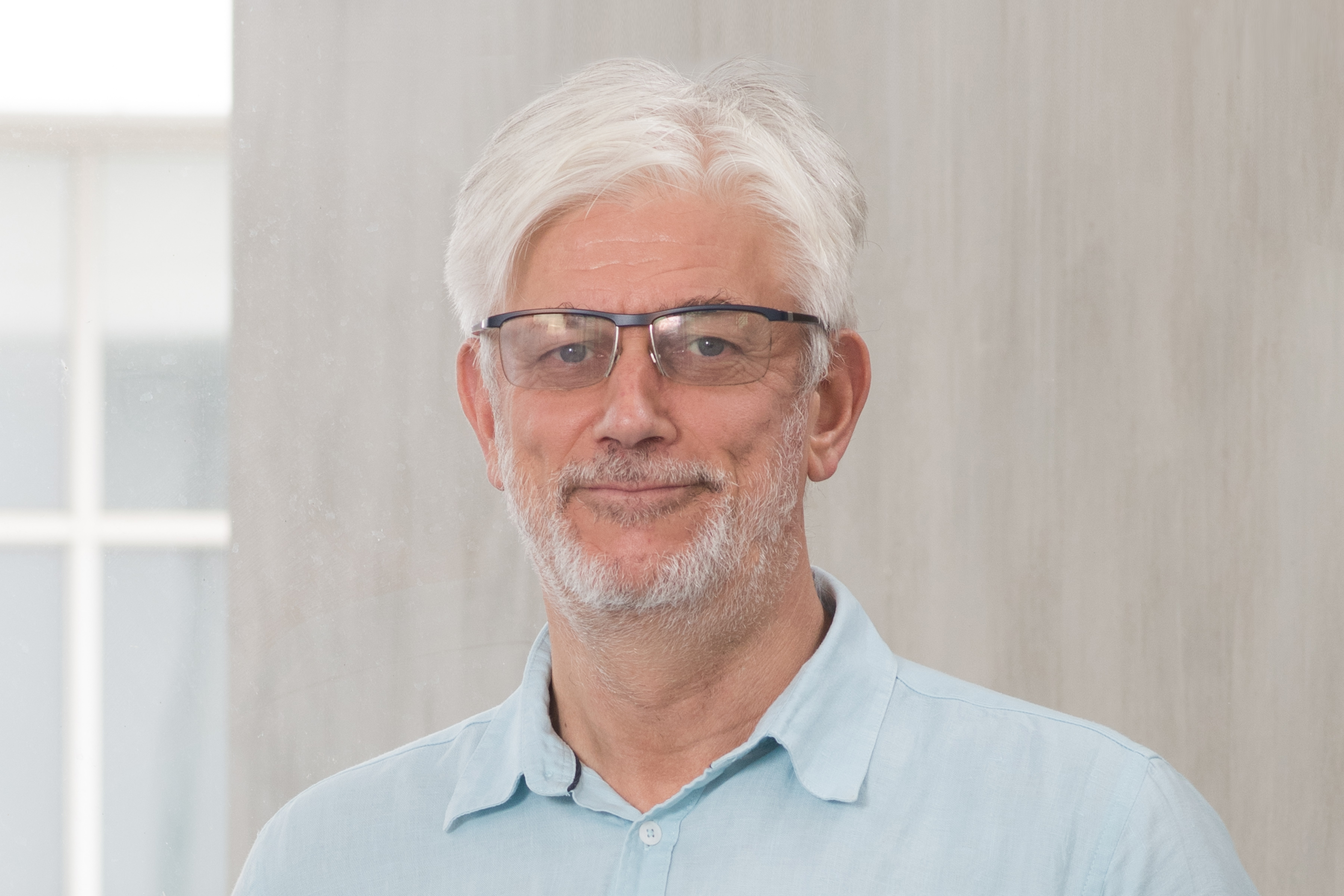 Prof Frans Viljoen is professor of law and Director of the Centre for Human Rights, Faculty of Law (2007-2023). His area of research is regional human rights protection, with particular attention to the African Union human rights standards, institutions and processes, within their socio-economic and political context. He is the author of one of the leading texts on the African human rights system, International human rights law in Africa. He was the founding editor-in-chief of the leading journal on human rights in Africa, the African Human Rights Law Journal, and founding convening editor of the African Human Rights Yearbook/ Annuaire africain des droits de l’homme. He has served as visiting professor on the African human rights system at various Universities, including the University of Peace, Costa Rica, the Sorbonne and Oxford. Frans is the Deputy Chairperson of the Global Campus of Human Rights, an institution bringing together seven Master’s programmes from across the globe in the fields of human rights and democratisation. In September 2021, he was elected as a member of the Advisory Committee of the UN Human Rights Council.
Prof Frans Viljoen is professor of law and Director of the Centre for Human Rights, Faculty of Law (2007-2023). His area of research is regional human rights protection, with particular attention to the African Union human rights standards, institutions and processes, within their socio-economic and political context. He is the author of one of the leading texts on the African human rights system, International human rights law in Africa. He was the founding editor-in-chief of the leading journal on human rights in Africa, the African Human Rights Law Journal, and founding convening editor of the African Human Rights Yearbook/ Annuaire africain des droits de l’homme. He has served as visiting professor on the African human rights system at various Universities, including the University of Peace, Costa Rica, the Sorbonne and Oxford. Frans is the Deputy Chairperson of the Global Campus of Human Rights, an institution bringing together seven Master’s programmes from across the globe in the fields of human rights and democratisation. In September 2021, he was elected as a member of the Advisory Committee of the UN Human Rights Council.
Anna Sevortian - O’Brien Fellow in Residence Fall 2023
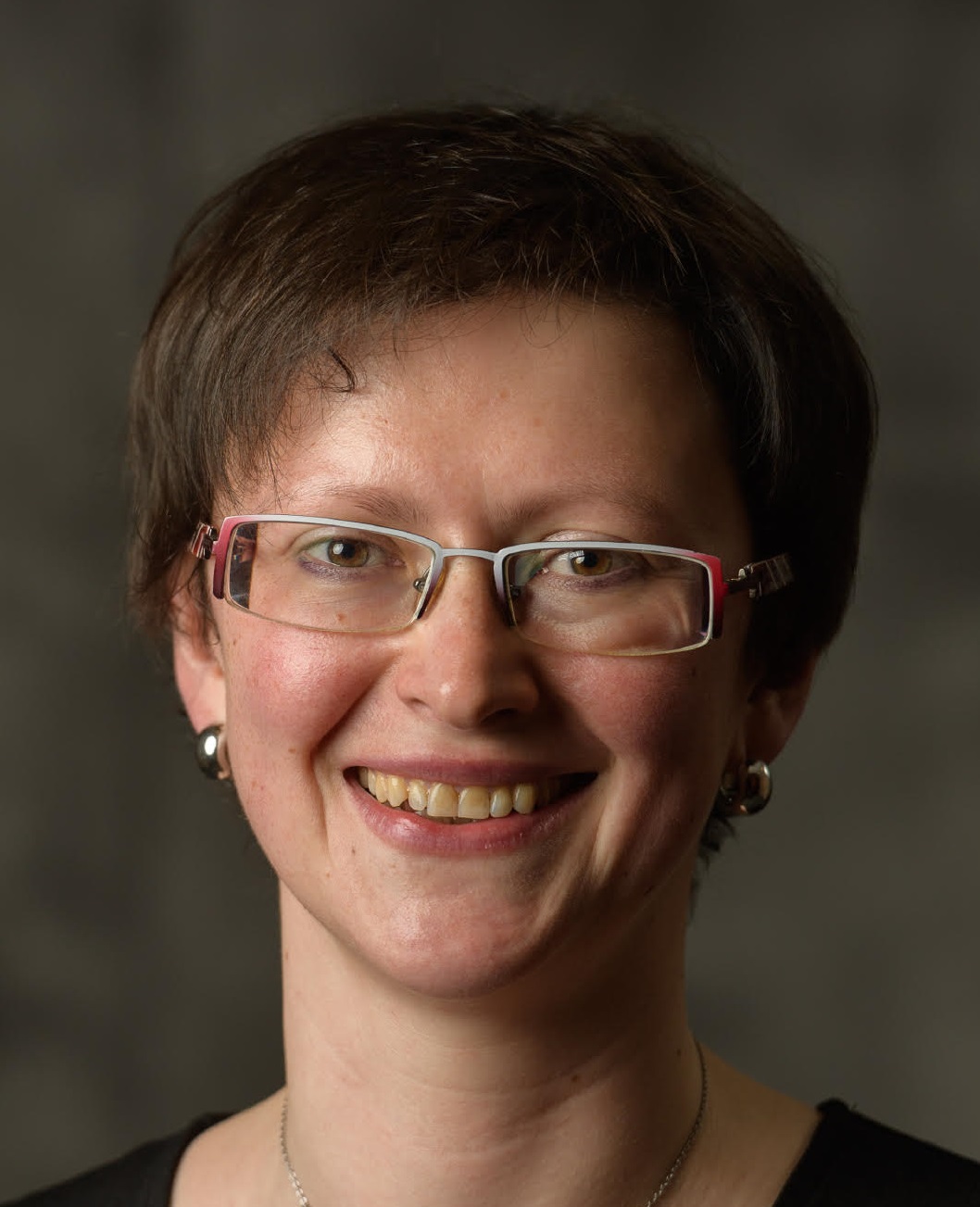 Anna Sevortian has joined the Centre for Human Rights & Legal Pluralism (CHRLP) as the O’Brien Human Rights Fellow in Residence for the fall semester 2023.
Anna Sevortian has joined the Centre for Human Rights & Legal Pluralism (CHRLP) as the O’Brien Human Rights Fellow in Residence for the fall semester 2023.
Anna has over 20 years of experience in supporting civil society and addressing human rights issues in Wider Europe. She serves as Senior Advisor of the Civil Society Forum (CSF e.V.) in Berlin, Germany, an association of non-governmental organizations from 20+ countries, and is Standing Committee member of the Council of Europe’s Conference of International NGOs (CINGO).
Ms.Sevortian has previously been Russia Director at Human Rights Watch, the Rockefeller Foundation's Bellagio Center Resident and the Starovoitova Fellow at the Woodrow Wilson Center. Over the years, she contributed to 40+ research, evaluation and development projects and publications. Anna holds Mid-Career MPA from Harvard Kennedy School and a degree in journalism from the Moscow State University.
Carla Ferstman - O’Brien Fellow in Residence Fall 2023
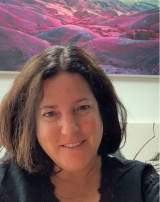 Carla Ferstman is a Full Professor of Law at Essex Law School, UK and a member of the Essex Human Rights Centre and Armed Conflict and Crisis Hub. Her research focuses on the intersections between public international law, human rights law, and international criminal law and includes: Conceptualising Arbitrary Detention: Power, Punishment and Control (forthcoming, Bristol 2024); International Organizations and the Fight for Accountability: The Remedies and Reparations Gap (OUP 2017); and Reparations for Victims of Genocide, War Crimes and Crimes Against Humanity Systems in Place and Systems in the Making (Martinus Nijhoff/Brill 2009, revised 2nd ed 2020).
Carla Ferstman is a Full Professor of Law at Essex Law School, UK and a member of the Essex Human Rights Centre and Armed Conflict and Crisis Hub. Her research focuses on the intersections between public international law, human rights law, and international criminal law and includes: Conceptualising Arbitrary Detention: Power, Punishment and Control (forthcoming, Bristol 2024); International Organizations and the Fight for Accountability: The Remedies and Reparations Gap (OUP 2017); and Reparations for Victims of Genocide, War Crimes and Crimes Against Humanity Systems in Place and Systems in the Making (Martinus Nijhoff/Brill 2009, revised 2nd ed 2020).
Carla is a qualified Barrister & Solicitor (British Columbia, 1994) and she has worked in private practice, and advises governments, intergovernmental and nongovernmental organizations. She is a member since 2018 of the Council of Europe's Expert Council on NGO Law (a specialist body that provides commentary and expertise on the regulation of civil society space throughout the Council of Europe). She is also on the Justice Rapid Response-UN Women SGBV Justice Experts Roster through which she has conducted field investigations and policy work on sexual exploitation and abuse. She was a judge on the Aban Tribunal, an International People’s Tribunal established to investigate atrocities alleged to have taken in place in Iran during the November 2019 protests, which held oral hearings in November 2021 and February 2022 and issued its final judgment in November 2022.
Carla has also worked with the UN High Commissioner for Human Rights in Rwanda (1995 – 1997) and as Executive Legal Advisor of the Commission for Real Property Claims of Refugees and Displaced Persons in Bosnia and Herzegovina (1999-2001). She served as Legal Director (2001-2004) then Director (2004-2018) of the nongovernmental human rights organization REDRESS which pursues justice on behalf of victims of torture and related international crimes.
She holds a DPhil (Public International Law) (Oxon); LL.M (NYU); LL.B (UBC); BA (Philosophy) (Western). She was Fernand Braudel Fellow (2022) at European University Institute (Florence) and Jennings Randolph Senior Fellow (2012/13) at the United States Institute of Peace (Washington, DC).
During her time at the Centre, she hopes to continue her research on international organizations and looks forward to engaging with students, faculty and the wider Centre community.
Virginia Davis - O’Brien Fellow in Residence
 Virginia Davis is an American lawyer who has spent her career advocating for the rights of Indigenous peoples and supporting Indigenous nations in their efforts to strengthen tribal self-governance, with a particular focus on addressing violence against Indigenous women. For nearly 15 years, Virginia served at the National Congress of American Indians (NCAI), where she held roles as the Director of International Policy and the Director of Justice Policy, and served as the acting Executive Director. In these capacities, she actively engaged in international forums, including advocating for the adoption and implementation of the UN Declaration on the Rights of Indigenous Peoples and the American Declaration on the Rights of Indigenous Peoples.
Virginia Davis is an American lawyer who has spent her career advocating for the rights of Indigenous peoples and supporting Indigenous nations in their efforts to strengthen tribal self-governance, with a particular focus on addressing violence against Indigenous women. For nearly 15 years, Virginia served at the National Congress of American Indians (NCAI), where she held roles as the Director of International Policy and the Director of Justice Policy, and served as the acting Executive Director. In these capacities, she actively engaged in international forums, including advocating for the adoption and implementation of the UN Declaration on the Rights of Indigenous Peoples and the American Declaration on the Rights of Indigenous Peoples.
Virginia's experience also includes serving as the Director of Policy at the Office on Violence Against Women in the U.S. Department of Justice. Virginia helped shape key American laws, such as the Tribal Law & Order Act and the Violence Against Women Act, aimed at empowering tribal nations to administer justice and enhance public safety within their communities. Virginia has collaborated with Indigenous nations across the United States as they work to implement these laws, develop their justice systems, and address violence against Indigenous women. She also recently served as a facilitator for the Not Invisible Act Commission, a federal commission established to make recommendations regarding the crisis of missing and murdered Indigenous women.
Virginia is a Commissioner on the American Bar Association’s Commission on Domestic and Sexual Violence and has written and spoken widely on violence against women, criminal justice issues, civil and women’s rights, federal Indian law and policy, and international human rights. Virginia graduated from Harvard Law School and Yale University and was a Women’s Law and Public Policy Fellow at Georgetown University.
Omotunde Enigbokan - O’Brien Fellow in Residence
 Dr Omotunde Enigbokan has joined the Centre for Human Rights & Legal Pluralism (CHRLP) as an O’Brien Human Rights Fellow in Residence. She is a qualified lawyer and an expert in migrant’s and stateless person’s rights. Omotunde holds an LLD from the Centre for Human Rights, University of Pretoria, South Africa (September 2023). Her research interests focus on the intersection between birth registration, legal identity, prevention of statelessness and rights of refugees, migrants and internally displaced persons.
Dr Omotunde Enigbokan has joined the Centre for Human Rights & Legal Pluralism (CHRLP) as an O’Brien Human Rights Fellow in Residence. She is a qualified lawyer and an expert in migrant’s and stateless person’s rights. Omotunde holds an LLD from the Centre for Human Rights, University of Pretoria, South Africa (September 2023). Her research interests focus on the intersection between birth registration, legal identity, prevention of statelessness and rights of refugees, migrants and internally displaced persons.
Omotunde worked as a research assistant and project coordinator on several migration projects while working in the Migrant’s Rights Unit of the Centre for Human Rights, University of Pretoria from 2019 to 2023. She worked as a research assistant to Dr Romola Adeola (former Assistant Director, Centre for Refugee Studies York University) on the Global Engagement Network on Internal Displacement in Africa (GENIDA) project which was an international collaboration between the Centre for Human Rights, University of Pretoria, South Africa, and the Refugee Law Initiative at School of Advanced Study, University of London, United Kingdom. She also worked as a research consultant on a project funded by the UNHCR Southern-African Bureau in partnership with the Centre for Human Rights, which focussed on ‘the application of African refugee law in the context of the effects of climate change, environmental degradation, and disasters, particularly their impact on “public order”. Omotunde also engages in advocacy missions to African countries, promoting the ratification of African human rights instruments. She is among the expert contributors to African Guiding Principles on the Human Rights of All Migrants, Refugees and Asylum Seekers (2023). She has lectured severally on the international and African regional human rights laws on statelessness and nationality in the annual Advanced Human Rights Course of the Centre for Human Rights on the protection of forcibly displaced persons in Africa.
She is a valued member of an international research team for a Social Sciences and Humanities Research Council (SSHRC) Partnership Development Grant-funded project on Canada-South Africa Human Rights Engagement led by Prof Obiora Okafor and Prof Sylvia Bawa of York University, Toronto, Canada.
Omotunde holds an LLM from the University of Kwazulu-Natal South Africa and she is also a Refugee Law Initiative research affiliate of the School of Advanced study, University of London.”
Usha Natarajan - O’Brien Fellow in Residence Fall 2024
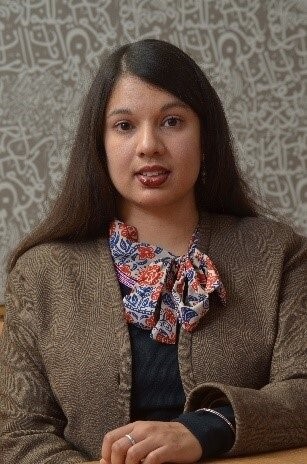 Usha Natarajan (PhD, MA, LLB, BA) is Law and Political Economy Faculty Fellow at Yale Law School and Senior Fellow at Melbourne Law School. From 2020 to 2023, she was Edward W Said Fellow at Columbia University. She has held fellowships at York University, the University of British Columbia, and Dalhousie University. From 2010 to 2020, Natarajan was tenured as Associate Professor of International Law and Associate Director of the Center for Migration and Refugee Studies at the American University in Cairo. Prior to academia she worked with international organizations in Asia and the Pacific including the United Nations, UNDP, UNESCO, and the World Bank.
Usha Natarajan (PhD, MA, LLB, BA) is Law and Political Economy Faculty Fellow at Yale Law School and Senior Fellow at Melbourne Law School. From 2020 to 2023, she was Edward W Said Fellow at Columbia University. She has held fellowships at York University, the University of British Columbia, and Dalhousie University. From 2010 to 2020, Natarajan was tenured as Associate Professor of International Law and Associate Director of the Center for Migration and Refugee Studies at the American University in Cairo. Prior to academia she worked with international organizations in Asia and the Pacific including the United Nations, UNDP, UNESCO, and the World Bank.
Natarajan’s research is interdisciplinary, utilizing postcolonial and Third World Approaches to International Law (TWAIL) to provide an interrelated understanding of development, environment, migration and conflict. Her research has been recognized by global awards and grants in international environmental law, migration and refugee law, and postcolonialism from the International Union for the Conservation of Nature, the European Union, the Social Sciences and Humanities Research Council of Canada, the London School of Economics and Political Science, and Harvard Law School. With over 50 publications, she is a founding editor of the TWAIL Review and serves on the editorial board of the Journal of Human Rights and the Environment and the Journal of Environmental Law and Practice. Recent articles include Racializing Nature and Naturalizing Race (2024), Climate Justice and the Right to Solidarity (2024), and The Global Commons: Deep Sea, Outer Space, and Beyond (2023).
Gamze Ovacik - O’Brien Fellow in Residence Fall 2024
 Gamze Ovacık is an O’Brien Human Rights Fellow in Residence until February 2025 at McGill University Faculty of Law, Centre for Human Rights and Legal Pluralism where she was the Steinberg Postdoctoral Fellow on Migration Law between August 2023-2024. Her areas of interest and expertise are migration and asylum law, international law and human rights law. She has been teaching in these fields at Başkent University Faculty of Law where she holds a position as an assistant professor. Previously, she was a postdoctoral fellow at the University of Gothenburg within ASILE Project on global asylum governance and the European Union’s role. Her Ph.D. research at Bilkent University Faculty of Law offered a comparative analysis of Turkish and European judicial practices on asylum, removal and immigration detention against the background of Turkey’s position as a safe third country. She joined Radboud University Centre for Migration Law as a visiting researcher in 2019-2020. She has been working with UNHCR, IOM and ICMPD Turkey offices on various projects. Her current research focuses on judicial practices in the asylum field, policies for externalization of migration control and attribution of international responsibility in this context, safe third country practices in Europe and North America, and legality of withdrawal from international human rights treaties.
Gamze Ovacık is an O’Brien Human Rights Fellow in Residence until February 2025 at McGill University Faculty of Law, Centre for Human Rights and Legal Pluralism where she was the Steinberg Postdoctoral Fellow on Migration Law between August 2023-2024. Her areas of interest and expertise are migration and asylum law, international law and human rights law. She has been teaching in these fields at Başkent University Faculty of Law where she holds a position as an assistant professor. Previously, she was a postdoctoral fellow at the University of Gothenburg within ASILE Project on global asylum governance and the European Union’s role. Her Ph.D. research at Bilkent University Faculty of Law offered a comparative analysis of Turkish and European judicial practices on asylum, removal and immigration detention against the background of Turkey’s position as a safe third country. She joined Radboud University Centre for Migration Law as a visiting researcher in 2019-2020. She has been working with UNHCR, IOM and ICMPD Turkey offices on various projects. Her current research focuses on judicial practices in the asylum field, policies for externalization of migration control and attribution of international responsibility in this context, safe third country practices in Europe and North America, and legality of withdrawal from international human rights treaties.
Angela Njeri Gitahi - O’Brien Fellow in Residence Winter 2025
 Angela Njeri Gitahi, J.D., is a Project Manager at the ELIMU Impact Evaluation Center at McGill University. She recently completed her Master’s studies (LL.M) at the University of East London, specializing in Artificial Intelligence for Good with a focus on its applications in justice reform. Angela holds a Bachelor of Laws (LL.B.) from Kenyatta University and completed the Advocate’s Training Program (Post Grad Dip. in Law) at the Kenya School of Law. She is also a student of the Abdul Latif Jameel Poverty Action Lab (J-PAL), specializing in evidence-based policy evaluation.
Angela Njeri Gitahi, J.D., is a Project Manager at the ELIMU Impact Evaluation Center at McGill University. She recently completed her Master’s studies (LL.M) at the University of East London, specializing in Artificial Intelligence for Good with a focus on its applications in justice reform. Angela holds a Bachelor of Laws (LL.B.) from Kenyatta University and completed the Advocate’s Training Program (Post Grad Dip. in Law) at the Kenya School of Law. She is also a student of the Abdul Latif Jameel Poverty Action Lab (J-PAL), specializing in evidence-based policy evaluation.
Angela is driven by a steadfast passion for achieving access to justice, particularly in underserved and marginalized communities. She developed and runs a remote legal aid clinic situated in rural Kenya, which connects law students from McGill and Kenyatta Universities with local communities to provide free legal aid. This initiative bridges the gap between academic learning and practical legal service, empowering both students and residents while fostering equitable access to justice.
In her teaching roles, Angela lectures on public interest law and legal clinic practice at Kenyatta University and on law, government, and human rights at the University of Nairobi. She is deeply committed to mentoring students and equipping them with the skills necessary for impactful legal careers. Angela spearheads the Memorandum of Understanding (MOU) between McGill University and the Kenyatta University School of Law (KUSOL), focusing on the actualization of legal clinics to enhance experiential legal education and expand access to justice.
Angela is highly recognized for her work in legal pluralism, the achievement of human rights, and her dedication to persons with disabilities (PWD), particularly the hearing impaired, through her extensive pro bono work. Her efforts include working closely with judicial stakeholders and prison facilities to promote legal aid for incarcerated individuals and marginalized groups.
As a researcher, Angela has overseen more than five cycles of nationally representative surveys aimed at understanding justice system challenges and improving legal access. She has also developed an Artificial Intelligence (A.I) system tailored for legal aid clinics, which streamlines case management and enhances efficiency. Her research contributions include the publication The Rule of Law or the Rule of Robots? Nationally Representative Survey Evidence from Kenya, which explores the intersection of AI and judicial legitimacy and has gained significant recognition.
Angela is an active member of the Law Society of Kenya (LSK), particularly its IT Committee, where she advocates for the integration of technology into legal practice to modernize and expand access to justice. Fluent in English, Swahili, Kikuyu, and Kenyan Sign Language, Angela combines academic rigor, operational expertise, and an unwavering commitment to advancing human rights and justice reform through education, innovation, and collaboration.
Dev Datta Joshi - O’Brien Fellow in Residence Winter 2025
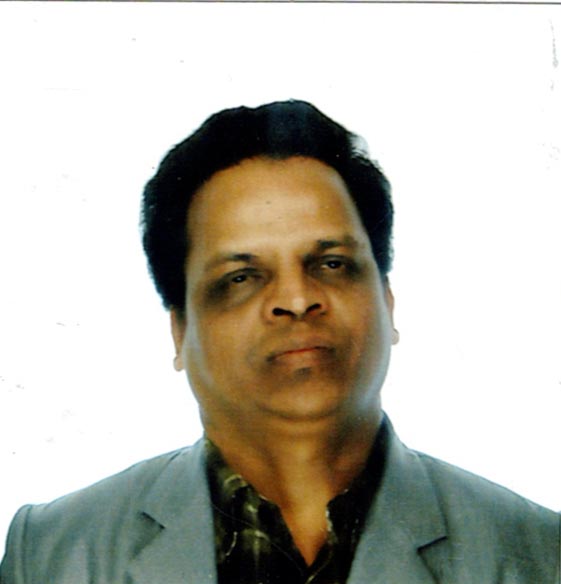 For over 20 years, Dev Datta Joshi has been working to promote disability rights in Nepal and internationally. Currently, he serves as the Founder and Executive Director with Equip for Equality Nepal (EEN), an organization devoted for the promotion of democracy and human rights in Nepal. In this position, he works to advance human rights and social justice, particularly focusing on the rights of refugee persons with disabilities.
For over 20 years, Dev Datta Joshi has been working to promote disability rights in Nepal and internationally. Currently, he serves as the Founder and Executive Director with Equip for Equality Nepal (EEN), an organization devoted for the promotion of democracy and human rights in Nepal. In this position, he works to advance human rights and social justice, particularly focusing on the rights of refugee persons with disabilities.
As a disability rights lawyer, he has advocated against the involuntary sterilization of women with disabilities and especially through litigation. He has advocated for the removal of discriminatory terms from Nepalese legislation, especially terms regarding women with intellectual disabilities. He led a campaign for employment opportunities for people with disabilities. This campaign, which he named “One Organization, One Person with Disability,” results in hundreds of people with disabilities gaining employment opportunities in international and national non-government organizations in Nepal. He advocated the government of Nepal to ratify the UN Convention on the Rights of Persons with Disabilities (CRPD). Nepal ratified the Convention in 2010.
In addition, he has practiced law in Nepal, taking cases to the Nepalese Supreme Court and helping to generate landmark jurisprudence on disability rights in Nepal. As his resume shows, he has achieved significant success in litigation to put an end to discriminatory practices in the electoral system. He has successfully used his legal talents to bring accountability to egregious forms of police abuse and misconduct. He has the experience and the empathy to know exactly how women and girls with disabilities can empower themselves and assist one another in breaking barriers of exclusion. And he has similar experiences regarding the right to access to education and the creation of a library to facilitate that access with appropriate accommodations and advanced technology.
Dev Datta Joshi is a powerful example of the good that one person can do when they harness their passion, skills, experience, and drive to fight for a cause. Working to advance human rights and social justice, particularly in support of persons with disabilities, is his life’s calling. By advocating inclusion, voting, and litigating rights violations against persons with disabilities, Dev is working to empower Nepal’s over 650,000 persons with disabilities. Today, Dev’s work has impacted more than two million marginalized people such as refugees, LGBTQIA+ community, Dalit (a group that is marginalized in South Asia), and persons with disabilities worldwide, especially South Asia, to dismantle barriers to most marginalized persons’ social, economic, and political participation.
Dev’s achievements have earned him numerous accolades, including Institute of International Education (IIE) Centennial Fellowship (2022-2023); Hubert H. Humphrey Fellowship at American University’s Washington College of Law (2018-2019) and Open Society Foundations’ Disability Rights Scholarship Program (2013-2014).
Dev obtained an LLM in International & Comparative Disability Law and Policy at the National University of Ireland, Galway’s Centre for Disability Law & Policy. Dev has also: (1) Presented at conferences and workshops internationally; (2) Published two books and over 100 Op-Eds and academic articles about disability rights.
Alexandra Sandoval Mantilla - O’Brien Fellow in Residence Winter 2025
 Alexandra Sandoval Mantilla is currently a Judge of the Chamber of Amnesties or Pardons and the Chairperson of the Gender Equality Commission in the Special Jurisdiction for Peace (JEP) in Colombia. Also, she was Vice-president of the JEP for the 2020-222 term. Also, she has been a senior lawyer in Women´s Link Worldwide, a clerk in the State Council of Colombia and a senior lawyer at the Inter-American Court of Human Rights. She holds a degree in law (J.D.) from Los Andes University of Colombia and an LLM (Cum laude) in International Human Rights and Criminal Justice from Utrecht University (The Netherlands). She has lectured in several institutions and seminars in Latin-America countries. She is the author of two books and several academic articles.
Alexandra Sandoval Mantilla is currently a Judge of the Chamber of Amnesties or Pardons and the Chairperson of the Gender Equality Commission in the Special Jurisdiction for Peace (JEP) in Colombia. Also, she was Vice-president of the JEP for the 2020-222 term. Also, she has been a senior lawyer in Women´s Link Worldwide, a clerk in the State Council of Colombia and a senior lawyer at the Inter-American Court of Human Rights. She holds a degree in law (J.D.) from Los Andes University of Colombia and an LLM (Cum laude) in International Human Rights and Criminal Justice from Utrecht University (The Netherlands). She has lectured in several institutions and seminars in Latin-America countries. She is the author of two books and several academic articles.
O'Brien Graduate Fellows
See our page on Current Graduate Students & Postdocs to see which students have received O'Brien Fellowships.
Visiting Fellows & Scholars
Maria del Pilar Vanegas Guzman - May 2024 – 2025
 Maria is a Canadian barrister and solicitor with the Law Society of Ontario, as well as a Colombian lawyer. She holds LLMs in international law from the London School of Economics and McGill University, and a postgraduate degree in international law and international relations from Paris II Panthéon-Assas. She is recognized for her extensive international humanitarian and legal consultancy field experience, having lived or worked in over 30 countries in Africa, Asia, the Middle East, Latin America, Europe and Canada. In her academic work, Maria connects global and local issues with her field experiences and the practice of law. Her axes of research include:
Maria is a Canadian barrister and solicitor with the Law Society of Ontario, as well as a Colombian lawyer. She holds LLMs in international law from the London School of Economics and McGill University, and a postgraduate degree in international law and international relations from Paris II Panthéon-Assas. She is recognized for her extensive international humanitarian and legal consultancy field experience, having lived or worked in over 30 countries in Africa, Asia, the Middle East, Latin America, Europe and Canada. In her academic work, Maria connects global and local issues with her field experiences and the practice of law. Her axes of research include:
-
The changing landscape of environmental, business & human rights litigation (joint project with Dr. Alexandra Harrington of Lancaster University).
-
Reparation and sanctions in just transitions, law enforcement and conflict resolution scenarios.
-
Access to justice of immigrant women and indigenous women deprived of freedom.
-
Women capabilities and belonging in transnational mobility contexts.
As a delegate for the International Committee of the Red Cross (ICRC), Maria worked for the protection of victims of conflict and people deprived of freedom, as well as the promotion of International Humanitarian Law and minimum use of force standards. She was a Peer Member of the ICRC’s Global Independent Board of Appeal. Her missions as an ICRC delegate were in Rwanda, Guinea, Israel and the Occupied Territories, the DRC, Nigeria, Honduras, and in the Regional Delegations of Uzbekistan covering the Central Asian Republics, Macedonia covering the Balkans, and Peru covering Bolivia, Peru and Ecuador. Inspired by some of these field experiences, Maria explored how to enhance compliance with International Humanitarian Law from a legal pluralism perspective (LLM Thesis, McGill University 2011, with Professor Rene Provost as supervisor).
Maria has worked in the public and private sectors. She advised the Ministry of Justice of Colombia in the implementation of Chapter V of the 2016 Havana Peace Agreement, related to the victims of armed conflict. She advised the Agency for the Legal Defense of Colombia on arbitration treaties and investment disputes. As legal adviser for Lawyers for Human Rights South Africa, she assisted in the resolution of environmental and natural resources disputes between local communities and mining corporations. She was in-house counsel for the Colombian oil company Ecopetrol, and for lndega-Panamco, Coca-Cola’s bottler in Latin America. She worked with insurance and reinsurance brokers in the UK and Colombia (Clarkson Puckle/Delima). She articled in civil litigation with the Toronto law firm Gaertner Baron and was a corporate lawyer with the boutique law firm Figueroa Sierra & Associates in Bogota. Maria was a clerk to justice Jorge Arango Mejia of the Constitutional Court of Colombia.
Over the years, Maria has endeavoured to promote dialogue between legal scholars from diverse jurisdictions. She is the founding president of the International Law Association (ILA) Colombian Branch and of its study group on transitional justice. She was a member of the ILA Committee on International Environmental Law and Sustainable Management of Natural Resources. She organised international law conferences on international criminal justice, transitional justice, international organisations, international perspectives on fracking, bringing together Colombian and international legal scholars and practitioners. She organised the Central Asian and Russian Marten’s Moot Court Competition as a delegate to Academic Circles for the ICRC in Tashkent. She conducted research in Indonesia, under the direction of Professor Leben of Paris II, about the conditionality of IMF agreements and the South East Asian financial crisis at the end of the 90s.
Maria received the Biodiversity Law and Governance Global Leadership award for her commitment to conflict resolution, human rights, and humanitarian work (CISDL, Montreal 2022). She was awarded the McGill Principal’s graduate fellowship during her LLM.
Trilingual. BCL from Rosario University in Bogota, common law equivalencies at McGill University.
Katie Pentney - May 2023-2025
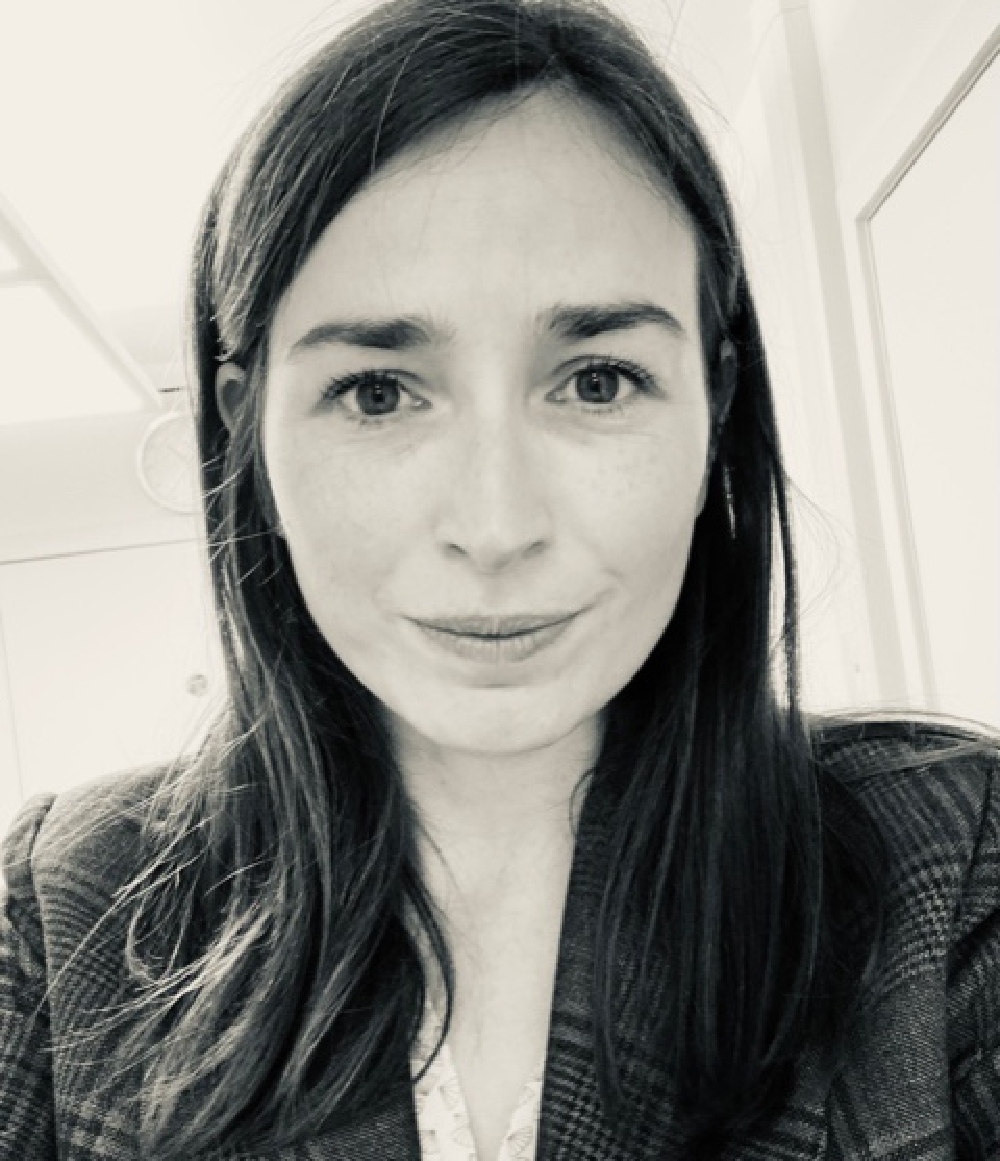 Katie is human rights lawyer and DPhil Candidate in Law at the University of Oxford. Her doctoral research analyses whether government disinformation may violate the right to freedom of expression, in particular the public’s right to be informed. The project examines the continued resonance of traditional theories underlying freedom of expression in the modern era, and compares the formulation and interpretation of the right under the Canadian Charter, the US Constitution, and the European Convention on Human Rights.
Katie is human rights lawyer and DPhil Candidate in Law at the University of Oxford. Her doctoral research analyses whether government disinformation may violate the right to freedom of expression, in particular the public’s right to be informed. The project examines the continued resonance of traditional theories underlying freedom of expression in the modern era, and compares the formulation and interpretation of the right under the Canadian Charter, the US Constitution, and the European Convention on Human Rights.
Katie holds an Advanced LLM (summa cum laude) from Leiden University (Netherlands), a JD from Osgoode Hall Law School, and a BA (Highest Honours) in Political Science, with a Concentration in Gender & Politics, from Carleton University. Her LLM thesis, analyzing five forms of governmental interference with freedom of expression, was awarded the Max van der Stoel Human Rights Award 2021 and is featured among the suggested readings in the European Court of Human Rights’ Knowledge Sharing Platform. She has published articles in the Human Rights Law Review and Netherlands Quarterly of Human Rights, and has a podcast on hate speech, AI and freedom of expression entitled “Decoding Hate”, which was funded by the OSCE Representative on Freedom of the Media.
Katie has worked for a number of years in Canada and abroad at the intersection of law and policy on issues ranging from access to information to sexual- and gender-based violence, from climate change to hate speech. Most recently, Katie worked with Global Legal Action Network on a climate change case brought by Portuguese children and young people against 33 Respondent States before the European Court of Human Rights. She provides pro bono assistance to international non-governmental organizations working on freedom of expression issues, and she is an Associate Editor on the Oxford University Commonwealth Law Journal.
Nancy R. Tapias Torrado - January 2023-January 2024
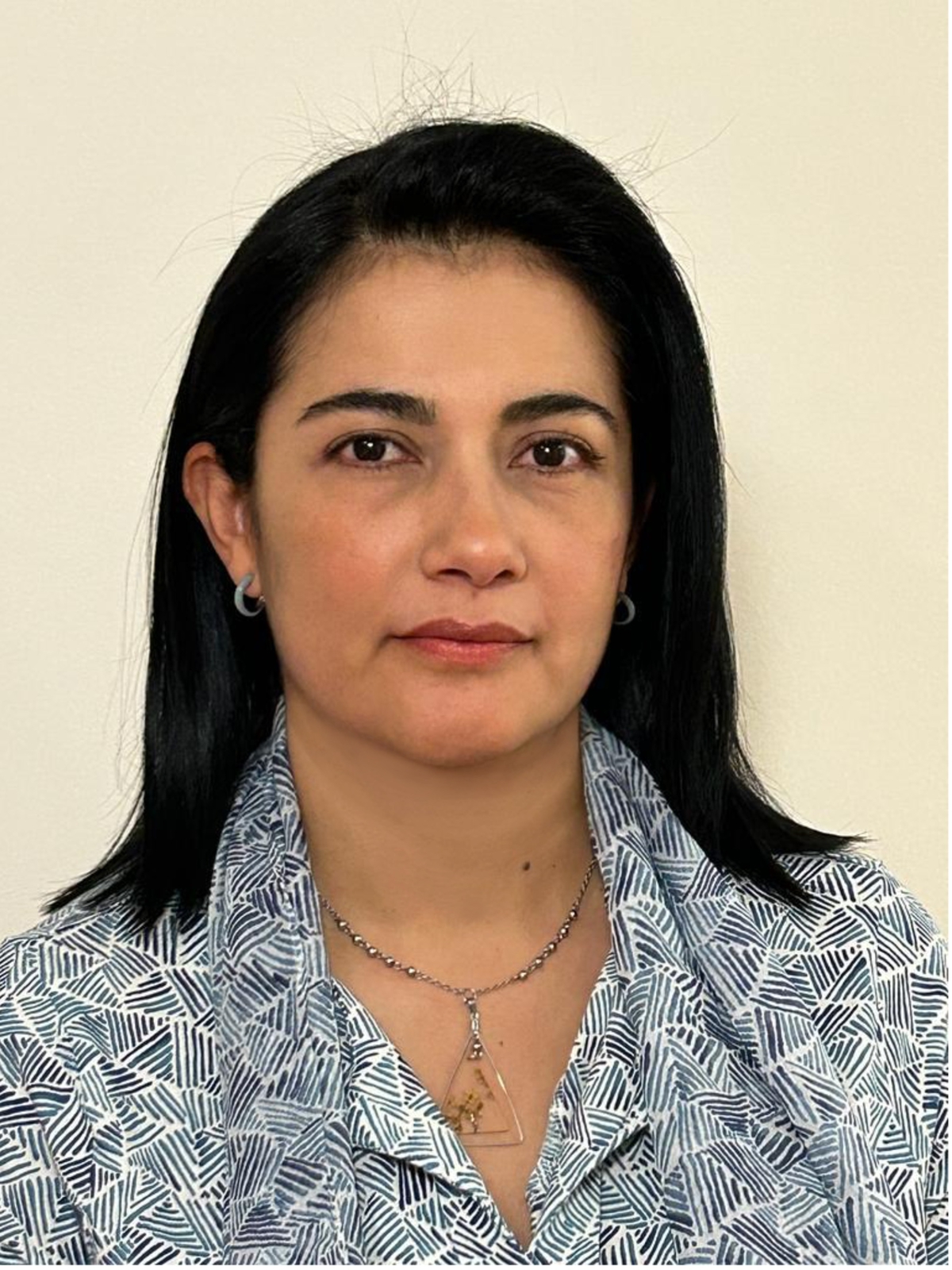 Nancy R. Tapias Torrado is a human rights lawyer, an international freelance consultant and a Postdoctoral Fellow in the Faculté de science politique et de droit at the Université du Québec à Montréal. She holds a PhD in sociology from the University of Oxford (UK), an LLM in International Human Rights Law from the University of Essex (UK) and an MPhil and an LLB from the Pontificia Universidad Javeriana (Colombia). Nancy has extensive academic, legal and advocacy experience working on key international issues that intersect human rights, gender, ethnicity, social justice, inequality, social movements and the environment. Using a combination of qualitative methods oriented by a research-action approach and the “braided action” theoretical framework that emerged from her PhD, Nancy’s postdoctoral investigation explores the impact of Indigenous women-led mobilizations on the behaviour of corporations involved in human rights abuses committed in connection to megaprojects in Canada. Her research has been published in top raking publications and will receive the International Studies Association Best Human Rights Dissertation Award in March 2023. It comes out of over a decade of experience working with and for neglected communities and human rights defenders (HRDs) at risk in Latin America, including seven years as Amnesty International’s Americas Regional Researcher on HRDs (International Secretariat, London, UK), and five years as Assistant Professor on Human Rights Law at Pontificia Universidad Javeriana. She has consulted for the United Nations OHCHR, the Inter-American Commission on Human Rights, and several organizations, such as OXFAM, CEJIL and PBI.
Nancy R. Tapias Torrado is a human rights lawyer, an international freelance consultant and a Postdoctoral Fellow in the Faculté de science politique et de droit at the Université du Québec à Montréal. She holds a PhD in sociology from the University of Oxford (UK), an LLM in International Human Rights Law from the University of Essex (UK) and an MPhil and an LLB from the Pontificia Universidad Javeriana (Colombia). Nancy has extensive academic, legal and advocacy experience working on key international issues that intersect human rights, gender, ethnicity, social justice, inequality, social movements and the environment. Using a combination of qualitative methods oriented by a research-action approach and the “braided action” theoretical framework that emerged from her PhD, Nancy’s postdoctoral investigation explores the impact of Indigenous women-led mobilizations on the behaviour of corporations involved in human rights abuses committed in connection to megaprojects in Canada. Her research has been published in top raking publications and will receive the International Studies Association Best Human Rights Dissertation Award in March 2023. It comes out of over a decade of experience working with and for neglected communities and human rights defenders (HRDs) at risk in Latin America, including seven years as Amnesty International’s Americas Regional Researcher on HRDs (International Secretariat, London, UK), and five years as Assistant Professor on Human Rights Law at Pontificia Universidad Javeriana. She has consulted for the United Nations OHCHR, the Inter-American Commission on Human Rights, and several organizations, such as OXFAM, CEJIL and PBI.
Slava Balan - 2020-2023

Slava Balan holds a Master’s degree in Comparative Law from McGill University (2015), another Master’s degree in Comparative Constitutional Law from the Central European University (2002), and an equivalent of Bachelor in Law degree from the Moldova State University (2000).
Presently, Slava is pursuing a PhD in Law program at the University of Ottawa. His research project focuses on human rights-based approach (HRBA) to international, national and local development, policy, and law-making.
He collaborates with McGill Center for Human Rights and Legal Pluralism, the University of Ottawa Human Rights Research and Education Center, and Moldovan Equality Council.
As part-time international consultant, he contributes to the work of UN Women Ukraine on applying human rights and gender-based approach to local development and decentralization reform. He also collaborates in Freedom House’s annual Freedom in the World report, as well as with Moldovan community-based and human rights NGOs.
Slava’s current areas of professional and academic interest include human rights and gender-based approaches to (sustainable) development, policy-making and law, United Nations human rights system, protection of minorities, representation and elections.
Read his contributions to our blog.
Sonia Cancian - 2021-2023

She holds a Ph.D. in Humanities (History, Concordia University) and has received numerous fellowships, including SSHRC and FRQSC doctoral fellowships, the Women’s Centennial McGill Major Fellowship, and the McGill Eakin Visiting Fellowship in Canadian Studies. In 2008, she and Prof. Donna Gabaccia developed the Digitizing Immigrant Letters project (University of Minnesota), an award-winning research tool on 19th-20th century migrant correspondence. Recent scholarly appointments include Zayed University (Dubai, U.A.E.), the Max Planck Institute for Human Development (Berlin, Germany), and the McGill Centre for Interdisciplinary Research on Montreal.
Among the new volumes she has authored and edited are: Emotional Landscapes: Love, Gender, and Migration, co-edited by Borges, Cancian, and Reeder (University of Illinois Press, 2021), and With Your Words in My Hands: The Letters of Antonietta Petris and Loris Palma (McGill-Queen’s University Press, 2021). New projects examine emotions of inclusion/exclusion in global migration history, and memories of violence and migration in post-conflict resettlement.
Mauro Cristeche - 2019-2023
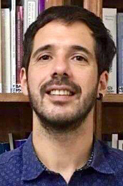
His area of research includes economic, social, and cultural rights (ESCR), welfare and labor policies, poverty, and inequality. He is also interested in theoretical debates on economic policies and legal issues from a critical perspective. His current project focuses on analyzing some of the main welfare policies in Argentina, their link with the labor market, and their impact on ESCR, and exploring a comparative perspective with other countries.
He holds a PhD in Law from the University of Buenos Aires in 2013. In 2015 he was an Erasmus Mundus postdoctoral scholar at the Department of Public Law, International and Community of University Degli Studi di Padova (Italy). In 2016 he received the Young Researcher Award from the National University of La Plata, for his scientific work at the Faculty of Legal and Social Sciences. In 2017 he obtained a Fulbright scholarship to a postdoctoral stay at the Department of Sociology of Johns Hopkins University (United States). He has developed academic activities in other Universities in Europe and America, and he is currently a visiting researcher at the CRIMT, University of Montreal. In 2019 he is publishing (co-authored) the book “Investigaciones sociojurídicas contemporáneas”. He was an O'Brien Fellow in Residence at the CHRLP from August to December 2019.
Shimelis Kene - November 2020 - December 2023
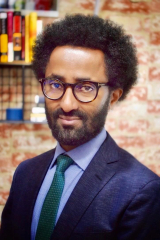
Previously, Dr. Kene worked at the United Nations Development Program (UNDP); the Human Rights Office of the United Nations Mission in Ethiopia and Eritrea (UNMEE); the Organization for Social Justice in Ethiopia, and the Ethiopian Federal First Instance Court. While in these positions, he worked on several community-based projects related to social justice, international human rights, access to justice, legal empowerment, and development. As Postgraduate Assistant at Northwestern’s Bluhm Legal Clinic, he conducted field research in Liberia under the auspices of UNICEF and wrote a report on the Liberian Juvenile Justice System.
Dr. Kene is a former O’Brien Fellow at the Centre for Human Rights and Legal Pluralism. He holds an LL.M in International Human Rights from Northwestern University and an LL.B from Addis Ababa University (Ethiopia). In his academic and other engagements, Dr. Kene aspires to foster shared and more nuanced understandings of complex intercultural issues and improve intercultural relations. Read his contributions to our blog.
Marina Sharpe - 2023
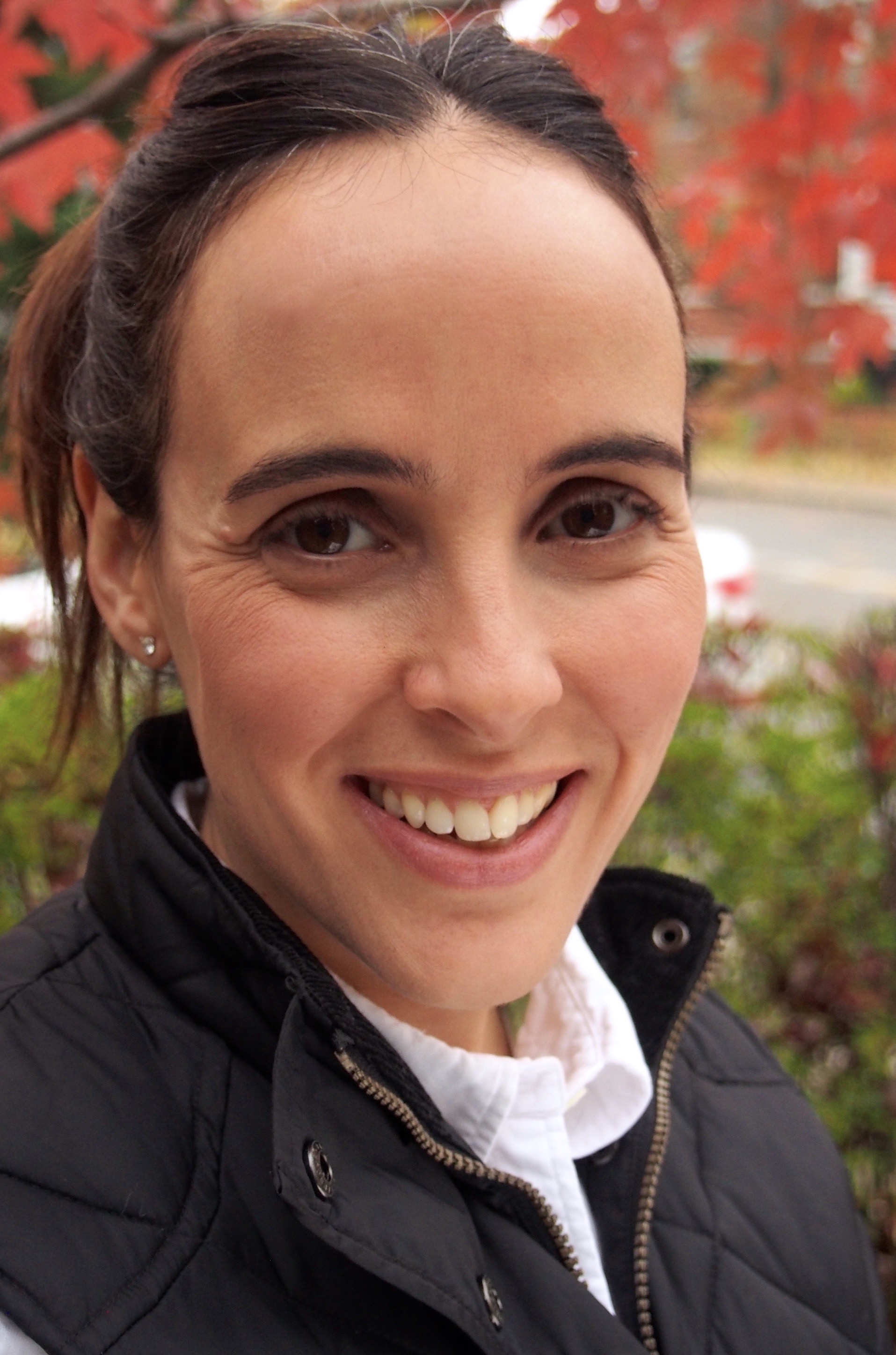
Tamara Thermitus - 2020-2025
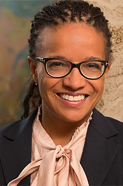 Me Tamara Thermitus, Ad.E., LLM, 2013, specializes in human rights. Her master’s at McGill Law focused on human rights, notably racial discrimination and defamation from a Critical Race Theory perspective.
Me Tamara Thermitus, Ad.E., LLM, 2013, specializes in human rights. Her master’s at McGill Law focused on human rights, notably racial discrimination and defamation from a Critical Race Theory perspective.
She chaired the Commission des droits de la personne et des droits de la jeunesse in 2017-2018. For over 20 years, she was a litigation lawyer in the Quebec Regional Office of Justice Canada.
Chief of staff to the Deputy Minister of the Indian Residential Schools Resolution Office in 2003, Me Thermitus was Director of Policy and Strategic Planning from 2004 to 2006. As chief negotiator for the federal government, she helped define the Truth and Reconciliation Commission’s mandate, which is at the heart of the historic settlement of the lawsuits brought by former residential schools students, one of the most important settlements in Canadian history.
Me Thermitus has accumulated numerous commitments to counter discrimination. From 2004 to 2010, she was Chair of the Committee on Cultural Communities of the Quebec Bar. In this capacity, she was among the first to raise awareness among the Bar's bodies on issues relating to racial discrimination in the profession and in the judicial system in Quebec. In this context, she directed the writing of several memoirs dealing in particular with racial profiling and racial discrimination.
In addition to being a lecturer on these issues, she is notably behind the development of the course on the social context of law offered by the École du Barreau. In 2014, Me Thermitus was the co-initiator of the project leading to the the Québec Bar’s report: “Forum-Pour une profession inclusive”, Ethnocultural diversity in the legal profession”. In 2015, she was given the mandate to prepare the annual conference of the Québec Bar. She also chaired the Equality Committee of the Quebec Division of the Canadian Bar Association.
Me Thermitus has received several distinctions. In 2011, the Barreau du Québec awarded her its prestigious Mérite du Barreau distinction (2011). She has been awarded the Queen Elizabeth Jubilee Medal (2012), the Employment Equity and Diversity Leadership Award (Department of Justice, 2010 and 2016) and was a recipient of the Black History Month award (2012). In 2015, she was chosen by a jury chaired by the Hon. Louise Arbour as part of the 40th anniversary of the Charter of human rights and freedoms, for the Commission des droits de la personne et de la jeunesse. The same year, the Black Law Students Association presented her with a Lifetime Achievement Award. Read her contributions to our blog.
Sarah Federman - 2022-2023
 Dr. Federman is an Associate Professor of Conflict Resolution at the University of San Diego's Kroc School of Peace Studies.
Dr. Federman is an Associate Professor of Conflict Resolution at the University of San Diego's Kroc School of Peace Studies.
Her book, The Last Train to Auschwitz: The French National Railways and the Journey to Accountability (2021), considers the role of the French National Railways (SNCF) in the World War II Holocaust deportations and the conflict that continued in the United States over whether the company has done enough to make amends. She has written related pieces in the Harvard Business Review and the Journal of Business Ethics.
Other books include Introduction to Conflict Resolution: Discourses and Dynamics and Narrative and Mass Atrocity: Victims and Perpetrators in the Aftermath (with Professor Ronald Niezen in press).
 Pranoto Iskandar
Pranoto Iskandar
Pranoto Iskandar serves as the founding director of the Institute for Migrant Rights in Cianjur, Indonesia. This Institute is recognized as the first of its kind in the country, representing a significant advancement within Indonesia's non-governmental sector. Prior to this role, he was employed at several law firms based in Jakarta. Iskandar has authored, edited, and translated numerous books, articles, and opinion pieces focusing on international law, constitutionalism, human rights, and migration. He is presently articulating a perspective that may be characterized as a Bandung vision of international law concerning peace. This perspective will be informed by the intellectual framework of immanentist religious traditions, which represent the predominant religious impulse among the populations of the Global South. Additionally, I aim to delineate a concept I term "holistic legal reasoning," positing that modern analytical legal reasoning is culturally determined. Furthermore, I propose an exploration of what I refer to as "constitutional transfiguration," a phenomenon in which a certain constitution is elevated to a status of sacredness or inviolability.
